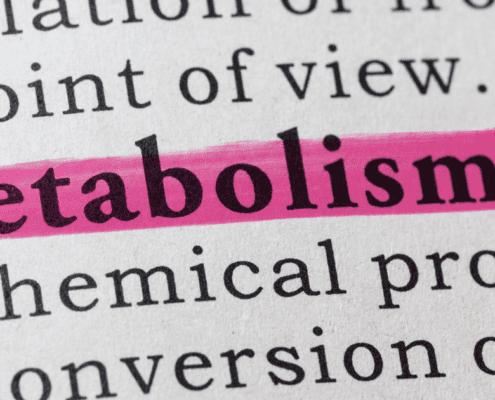Adept at Adapting – Metabolic Down-Regulation During a Diet
Last updated: Sep 2, 2021 by Michael Fouts
Time to read: 4 min
The Metabolic Down-Regulation
Metabolic down-regulation can be better thought of as “energy conservation mode” where your body will down-regulate It’s metabolism to help conserve energy. This down-regulation never happens to a point that you can’t lose weight, but it does make things more challenging – especially the longer into a diet you are.
Let’s use an example to help you understand this a little more. Let’s say you decide to lose some weight. You plan to track your food intake, with the intention of introducing a modest caloric deficit each day. Additionally you’re going to exercise 3-4 times per week for ~ 40 minutes. Everything is working great initially, you lose ~ 1% weight loss per week and are left thinking “Hey, this whole diet and exercise thing really works!”
But then somewhere around week 4, possibly earlier or maybe later, your weight loss results start to lessen. Now you’re only losing 0.5%, or less per week. But you haven’t changed anything, your diet and exercise habits are the same. This trend continues in the following weeks, and your frustration starts to increase – understandably so, you’ve been diligent with your diet (which isn’t easy) and you’ve been working your butt off exercising.
So what’s happening? Part of what could be happening is your body has kick-started it’s energy conservation mechanism, metabolic down-regulation, whereby your body looks to force you to expends less energy. Signs of metabolic down-regulation vary, metabolically and physically. Physically they can range from feeling more tired than usual (which makes you less likely to go be active), to things like fidgeting less (and even blinking). Many of these changes are things we don’t pay much attention to or notice.
- Side note about other things that make continued weight loss challenging (harder to create a consistent similar caloric deficit):
- As you become a smaller person (less weight) you need less energy to sustain yourself.
- As you become more fit from exercising, and your body adapts to your training stimulus, you tend to expend less calories (lower heart rate with the same training stimulus).
- Combination of the above: being more fit + being a smaller person.
What can be done to prevent metabolic down-regulation?
You can’t control your body’s metabolic response 100%, and we all have slightly different responses. The best advice is any combination of the following:
- Don’t be too aggressive with your weight loss plan
- Focus on a long-term goal that includes a diet and lifestyle pattern that is sustainable.
- Change your expectations and accept a lower rate of weight loss
- Try to increase your general activity level, like trying to increase your steps (while trying to keep food intake the same).
- Eating nutrient dense, whole foods, in balanced portions throughout the day. This will make you more full from less calories, and will help give you sustained energy throughout the day.
- Adequate sleep and stress management
In summary, we all experience metabolic down-regulation to differing degrees – some not at all, or very little, and some a lot. Larger adaptations tend to be seen with more aggressive approaches (aggressive dieting and exercise regimes). Further, it tends to be more common in those who have been dieting for long periods of time – this is why it can be a good idea to strategically take diet breaks (bring calories up to maintenance for 1-3 weeks). Know that metabolic down-regulation is a normal physiological process in response to a reduction in calories over. You can expect that over time the speed of weight loss may slow or even stop for a period of time.
- this was an aggressive study that couldn’t happen today, but was something done during WWII where participants could partake in this study instead of going to war.
- participants caloric intake was controlled and was about 50% of their necessary caloric intake.
- participants continually lost weight throughout study, but rates of weight loss decreased.






